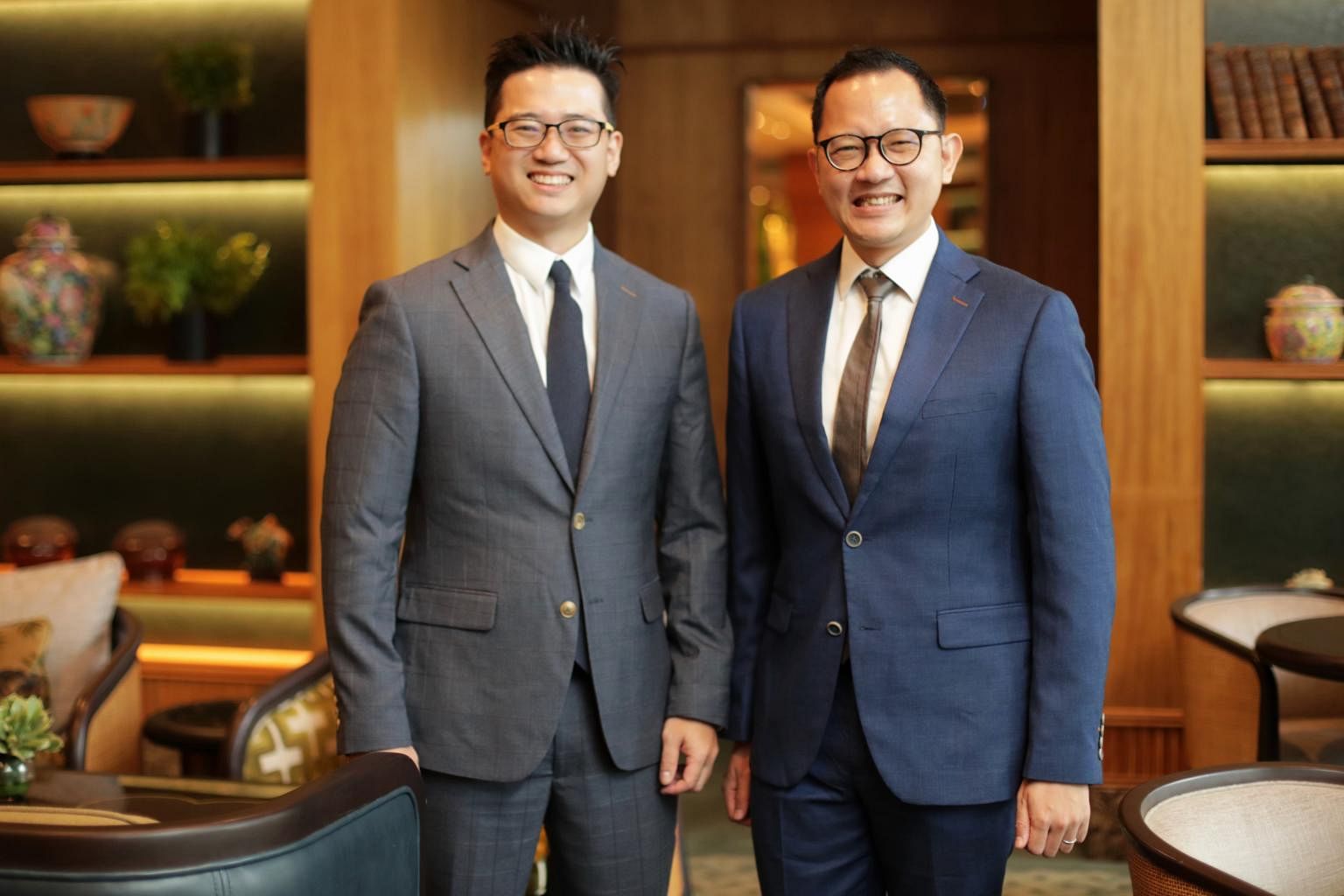Economics teachers win awards for using apps to mark scripts and help students keep up with lessons
Sign up now: Get ST's newsletters delivered to your inbox

The MineGap app, which Mr Koh Weining (right) developed with Mr Gilbert Ng and another economics teacher, allows teachers to use a hashtag function from which they can retrieve saved comments, to customise it to students' needs.
ST PHOTO: GIN TAY
SINGAPORE - Hwa Chong Institution economics teacher Gilbert Ng, 39, noticed that second-year students in the junior college sometimes had to miss class if they were competing in inter-school tournaments during the sports season.
To help them keep up with their studies, he worked with the National Institute of Education to create a "gamified flipped learning app" where students can access material such as quizzes and tutorial videos on their mobile phones. The app has been in use since 2017.
Mr Ng was one of two teachers who received the Outstanding Economics Teacher Award on Thursday (Oct 24) at the 12th Singapore Economic Policy Forum at the Regent Singapore hotel.
The other recipient was Mr Koh Weining, 35, of Temasek Junior College, who has been actively involved in the piloting and refining of the MineGap app, which helps teachers mark scripts and give feedback more efficiently.
Mr Koh told The Straits Times that teachers sometimes get frustrated with pen-and-paper marking, having to write very similar comments while struggling with limited space to do so.
The MineGap app, which Mr Koh developed with Mr Ng and another economics teacher, allows teachers to use a hashtag function from which they can retrieve saved comments, to customise it to students' needs.
"Students have benefited from the more substantive feedback," said Mr Koh, adding that the app was introduced last year.
The award, given by the Economic Society of Singapore, recognises teachers from secondary schools, junior college or centralised institutes who have contributed significantly towards the teaching and learning of economics in schools.
Senior Minister of State for Trade and Industry Chee Hong Tat acknowledged the two teachers' achievements in his speech at the event on Thursday.
He also revealed that while he did not study the subject earlier, he had taken on a second degree in economics at university and found it useful in understanding how economists think about issues and solve problems.
He cited words from the late Professor Steve Goldman in his first economics class on how economics is not about money, but about understanding how incentives shape behaviours and influence outcomes.
A profile of Mr Chee on the Ministry of Trade and Industry website shows that he graduated from the University of California at Berkeley in 1996 with a Bachelor of Science (Highest Honours) in Electrical Engineering and Computer Science and a Bachelor of Arts (Highest Honours) in Economics.
In his speech, Mr Chee noted that economics alone cannot solve the challenges of the allocation and distribution of resources in society, amid a widening income gap and unequal distribution.
This is because countries will need to have the "right politics and also, set of social values which help to build broad-base support for these redistribution policies".
But a good understanding of the subject can help design schemes to effectively redistribute resources, he told around 200 attendees at the forum.
He added that economic growth is still required to tackle these issues. "When we have zero or very low economic growth, we are essentially faced with a zero-sum game."
"When we want to give more opportunities to older workers, it means we have to take away opportunities from younger workers," he said, giving an example of how the situation could pan out.
Such trends can make the political environment more contentious, reducing the space available to debate and solve problems in a constructive manner, he said.
Growth is also needed to instill optimism in younger people, especially when many cities in the region are growing and offering more opportunities, so that Singapore remains vibrant and attractive to talent, he said.
Failure to do so could lead Singapore to become like a sleepy old folks' home, lacking in vitality and dynamism, added Mr Chee.
To achieve sustainable growth, the government needs to subject policies to rigorous economic analysis to ensure they are in line with sound economic principles, enable the economy to remain strong and competitive; and to understand how the incentives created will affect the desired outcomes, he said.
"As policymakers, we can be soft-hearted in designing our policies to have empathy and compassion, but we must never forget our economic fundamentals and become soft-headed," he added.


